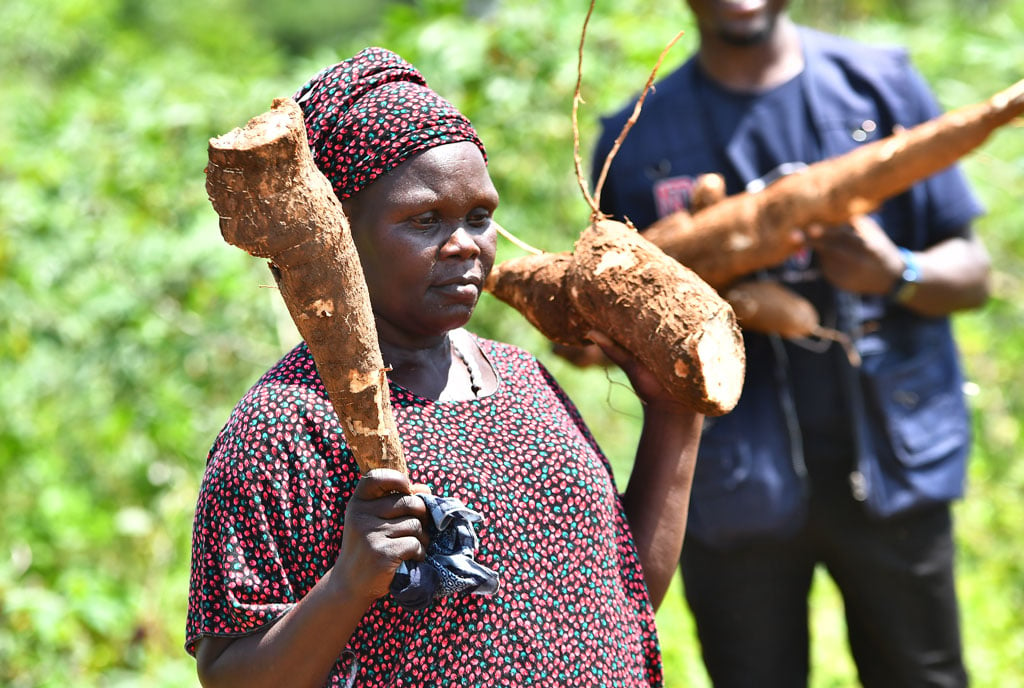Only one sand mining company operating legally in Lwera swamp, NEMA reveals

A NEMA official measures the depth of an open trench at one of the sand mining sites in Lwera swamp on February 12, 2020. PHOTO BY AL-MAHDI SSENKABIRWA
What you need to know:
Lwera swamp, which stretches 20 kilometers, is shared by the districts of Mpigi and Kalungu, with the latter having the largest share. Currently, over 20 sand mining firms operate in Lwera, with the majority located in the area under Kalungu District's jurisdiction
The National Environment Management Authority (NEMA) has revealed that only one sand mining company, Jamasco Investment Ltd, has a valid operational permit in Lwera swamp, located along the Kampala-Masaka highway. This revelation comes a day after the leadership of Mpigi District tasked NEMA to provide clarity on companies operating in the area without following guidelines.
Lwera swamp, which stretches 20 kilometers, is shared by the districts of Mpigi and Kalungu, with the latter having the largest share. Currently, over 20 sand mining firms operate in Lwera, with the majority located in the area under Kalungu District's jurisdiction. However, only Jamasco Investment Ltd has a valid permit, which expires in 2026.
According to Dr. Jerome Sebadduka, a natural resources management specialist at NEMA, three companies - Seroma, Pakison, and Lukaya Sandmine Limited, also known as Double Q - had their permits expire, leaving only Jamasco Investment Ltd with a valid permit.
"There are four companies that were given permits to operate in Lwera, including Jamasco Investment Limited, Seroma, Pakison, and Lukaya Sandmine Limited, also known as Double Q. However, three of these companies' permits have expired, and only Jamasco Investment Limited's permit remains valid," he explained in an interview on Thursday.
The excessive human activities in Lwera, such as sand mining and rice growing, have slowed down the water flow, affecting the Kampala-Masaka highway and causing regular cracks that impact traffic flow. Dr. Sebadduka acknowledged that NEMA's team is limited, but local leaders are mandated to inspect and stop any illegal activities in marshlands across Uganda.
"People blame NEMA, but despite being the leading agency, we are not working alone. Local leaders, from the village level, have the responsibility to protect and conserve natural resources in their areas. It is within the law," he said.
The National Environment Act 2019 empowers districts to manage wetlands within their jurisdictions and ensure that their boundaries are clearly demarcated. According to Mr. Martin Ssejemba, the Mpigi District chairperson, some individuals behind wetland degradation are powerful government officials who act with impunity.
"We conduct inspections at the district level and make reports, but we lack the political clout to stop these individuals. They are very powerful, and even NEMA seems to have failed to flush them out," he said.
Most of the sand excavated from Lwera is transported to Kampala and other urban centers to support the booming construction sector. A 2016 report by the Natural Resources Parliamentary Committee revealed that sand mining had affected fish stocks in Lake Victoria, as Lwera wetland acted as a breeding area. The report recommended banning sand mining, but no action has been taken to date.
Lwera wetland is a vital water catchment area that connects several rivers and wetlands in Gomba, Mpigi, and Kalungu districts and drains directly into Lake Victoria. Some encroachers claim to own plots of land in Lwera and possess land titles, raising questions about how they acquired them in an ecologically sensitive area.




